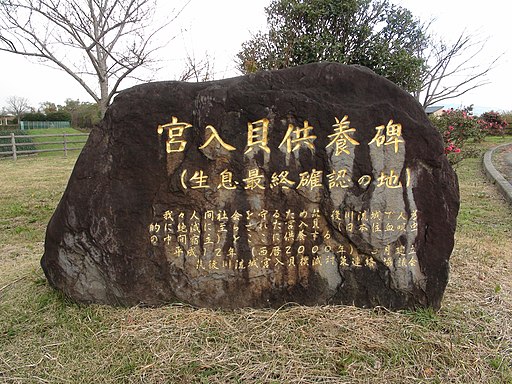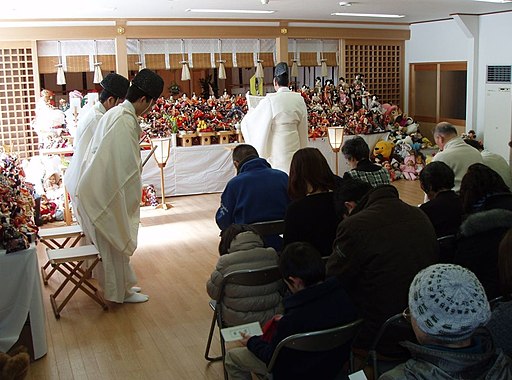"Irei-hi", the memorial cenotaph for the Hiroshima atomic bomb victims including 12 American captives.
In addition, "Kuyo" or "Irei" are also for animals and non-living materials.
For animals
Some temples in Japan implement funeral and prayer services for pets.
a tombstone for pets in a temple in Kyoto
Many Japanese institutes which use lab animals exercise irei or kuyo for lab animals every year.
e.g. Memorial Service for Laboratory Animals (Okinawa Institute of Science and Technology Graduate University)
the memorial cenotaph for a certain kind of water snail.
In the past, in some districts in Japan, a serious disease infected many habitats for a long time. A study in the early 20th Century found the cause of the disease to be parasites which grow in water snails called "Miyairi-gai". Therefore, the government and habitats exterminated all "Miyairi-gai".
The cenotaph indicates as follows;
Miyairi-gai Kuyo Cenotaph (This is the spot where the last living Miyairi-gai was found)
We pray (kuyo) for Miyairi-gai (the intermediate host of the parasite "Nihon Juketsu Kyuchu") which were exterminated by humans, for human society's safety. (Established in 2000)
For non-living materials
"Ningyo-kuyo" is a memorial service for dolls. When Japanese people dispose of dolls they love or they get dolls by inheritance, some of them ask temples to pray and burn them.
Ningyo-kuyo at Nishino Shrine
"Hari-kuyo" is to pray for needles. On 8th of Feb. or 8th of Dec. (ancient people thought these dates were the first and last of everyday life), at some shrines or temples, people put broken or rusted needles to very soft things (tofu or something) with thanks.
Hari kuyo; needles on a big tofu
Why soft things? Needles have seen hard life on clothing or some hard things, therefore people think needles deserve thanks for all their hard work and should finally rest in something soft.
There are other "kuyo" for other things - kitchen knives, scissors, mirrors and wallets in Japan.
My personal feeling
I was born and have lived in Japan for over 50 years so I don't feel strange about these customs. Pets and dolls are similar to family members. Lab animals and exterminated snails are victims of selfish mankind. Of course, the best is not to kill them, however if you can't do so, you have to feel guilty, apologise and thank them.
"Hari-kuyo" and other kuyo for materials are a little bit strange for me, but I understand it. In the past, before the mechanisation of society, these things were like close friends and partners for people. It is natural that people thank and pray for friends and partners, I think.





No comments:
Post a Comment